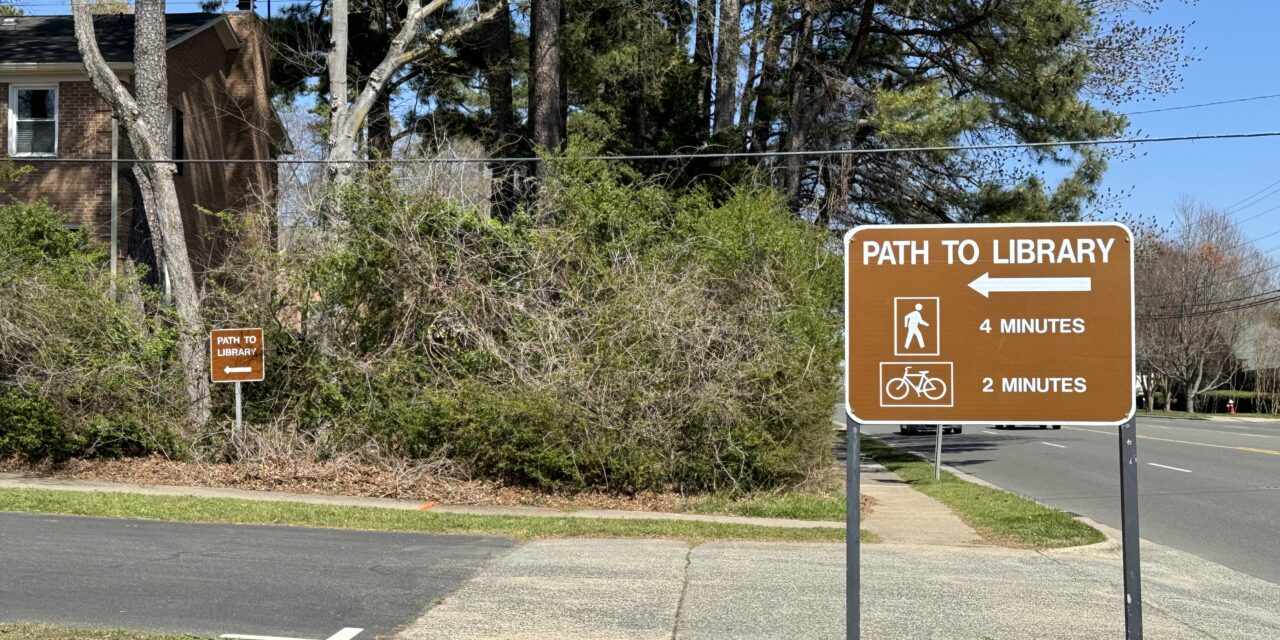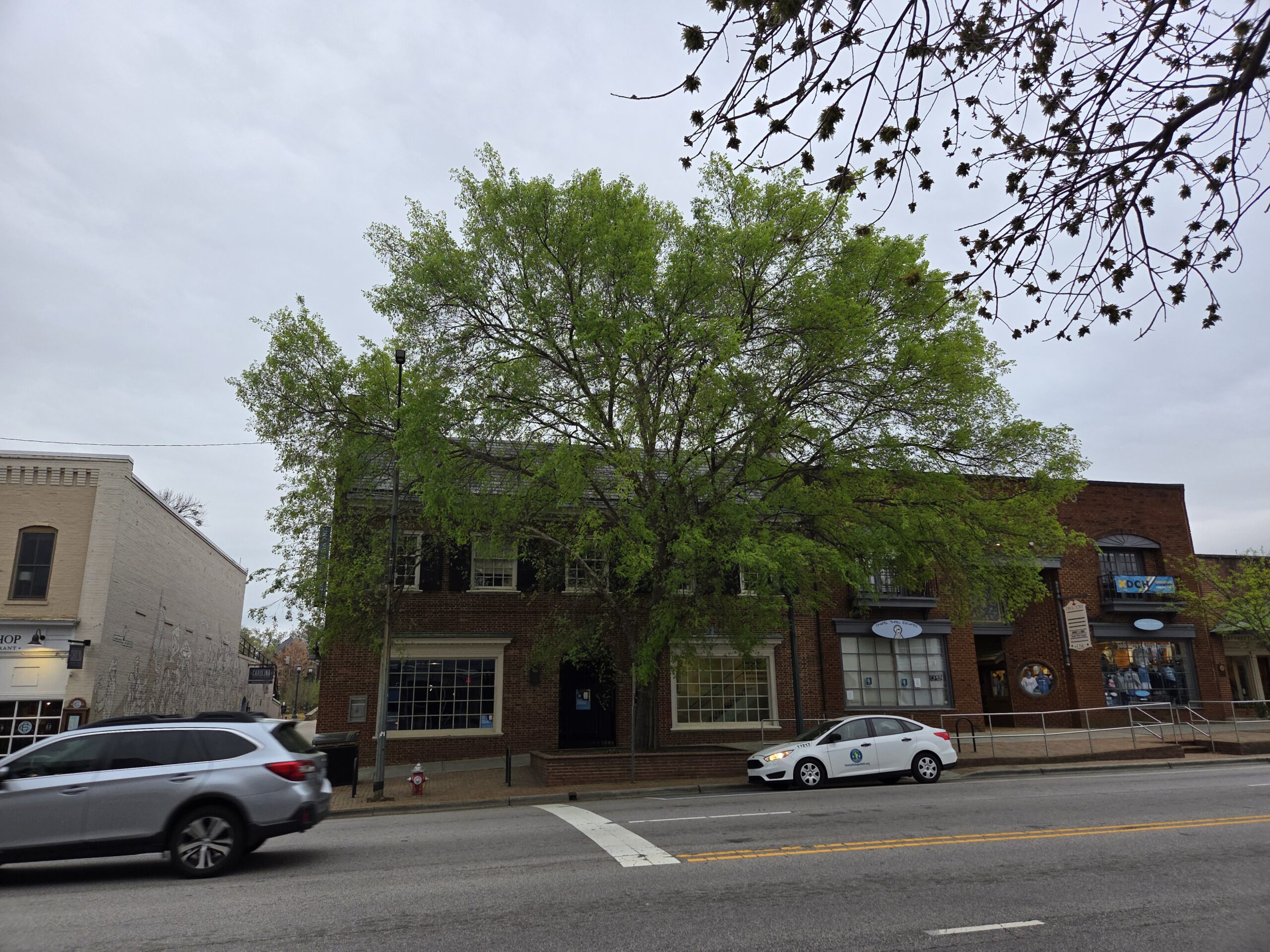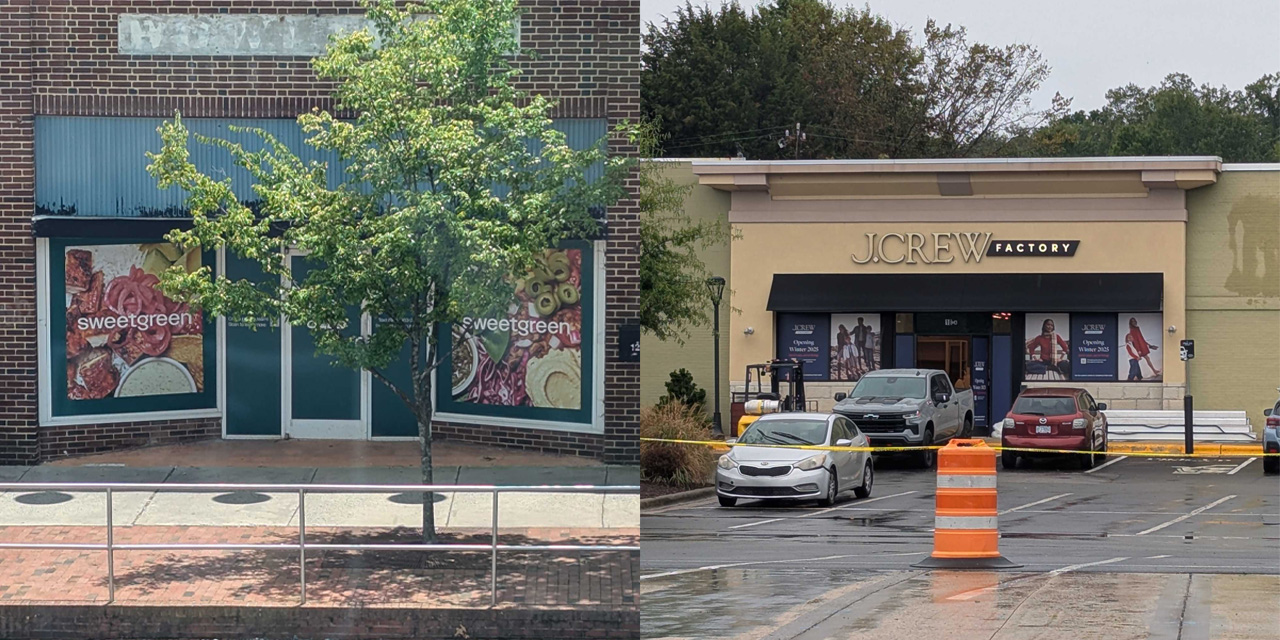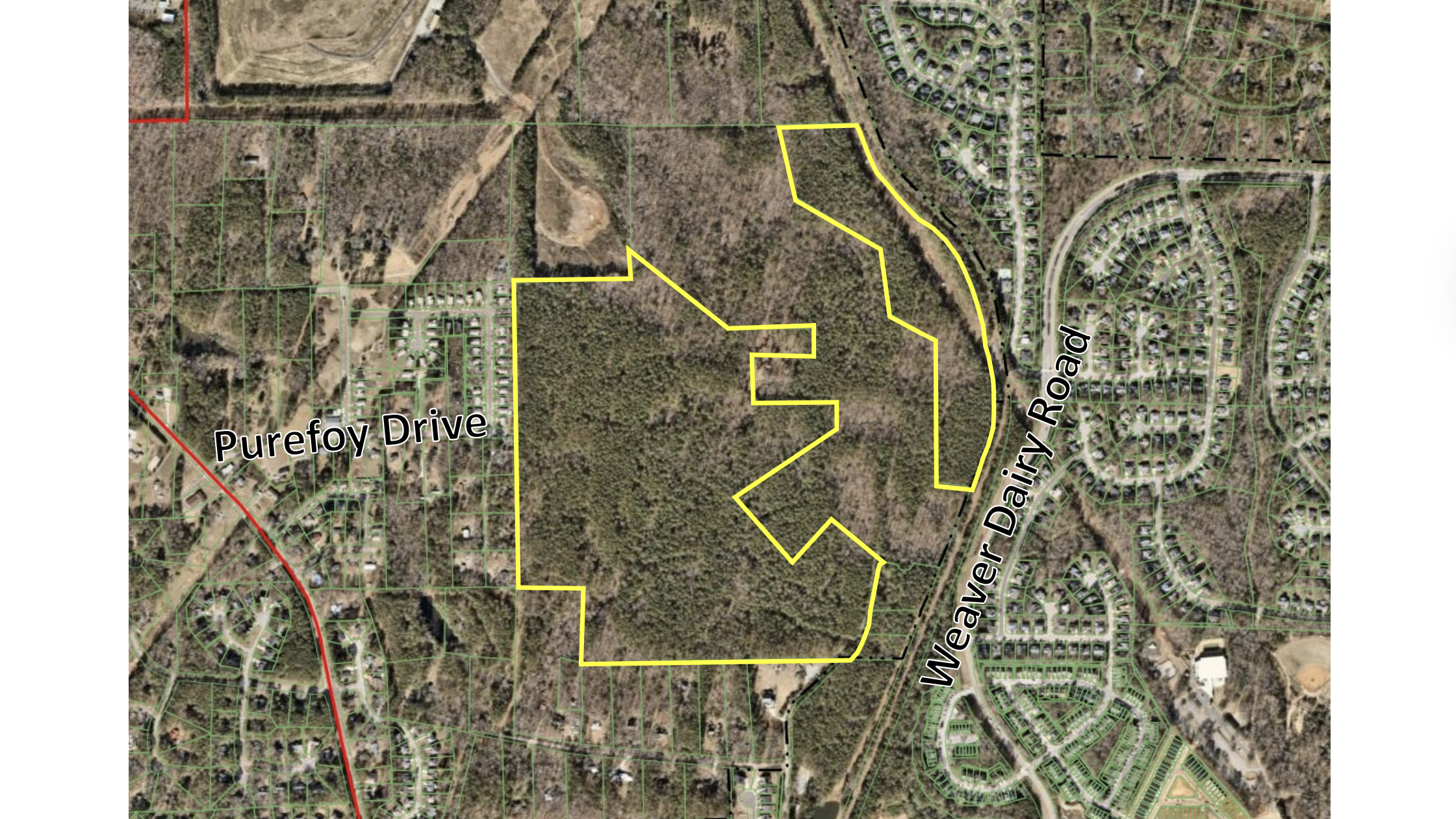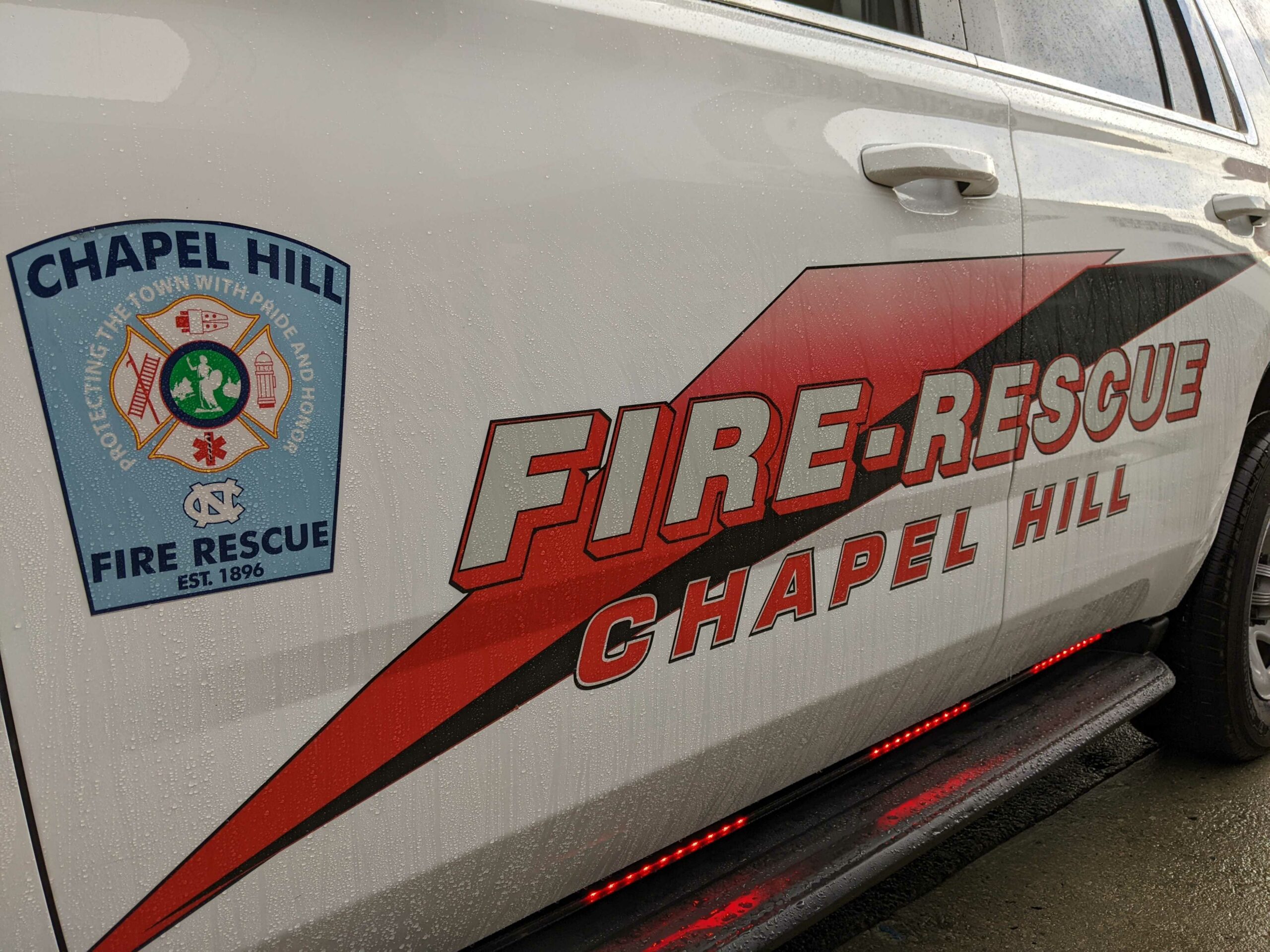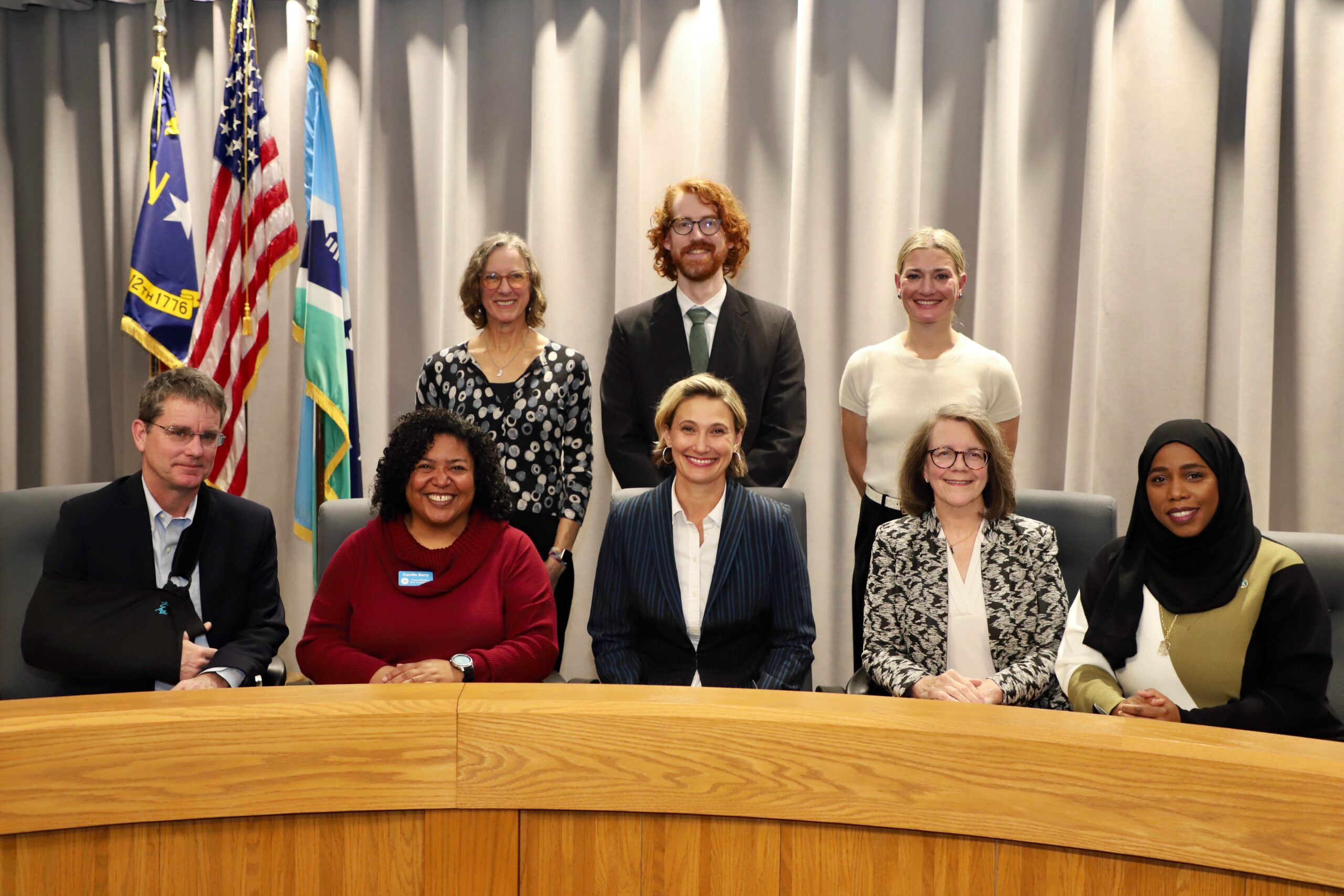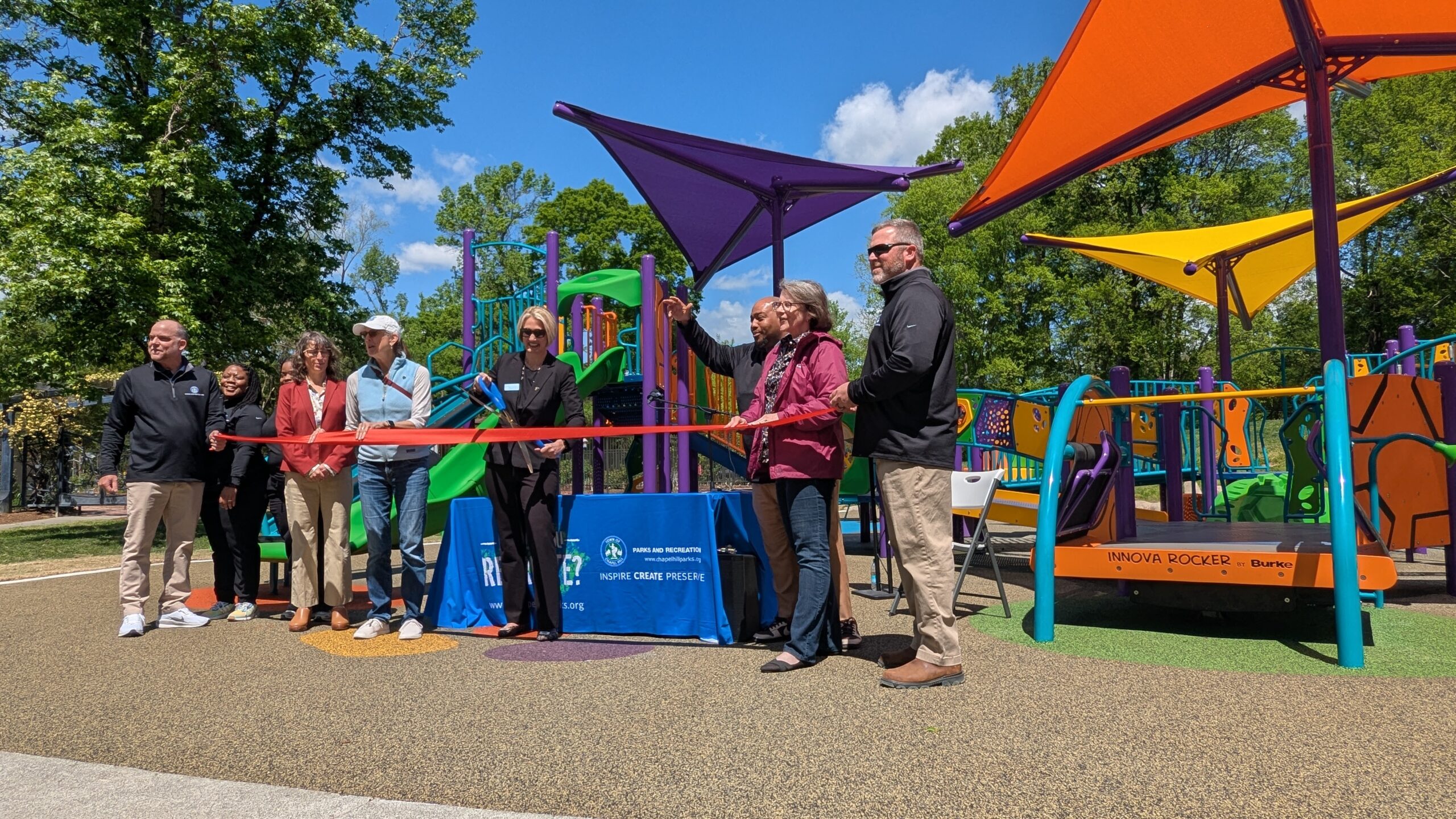Becky Moore has been a Chapel Hill resident since 2015 and she uses the path by her apartment every day. The half-sidewalk, half-asphalt trail connects East Franklin Street to the Chapel Hill Public Library. But Moore said, for a long time, the path has been increasingly difficult for her to use in her wheelchair. The sidewalk squares are starting to separate and the asphalt is cracked.
“I can’t go that way or it will tip me out of the chair,” Moore said. “And this one – it’s tough. And then this is the one that people walking up the trail, if they’re not paying attention, trip up all the time,” she added pointing to second and third cracks in the sidewalk.
Moore first started using a wheelchair when she was 12, and her time on wheels has translated into expertise. Still, she said the condition of paths, the sharpness of sidewalk cutouts and the placement of crosswalk buttons all significantly affect how she moves through the world on a daily basis. She includes these factors on a list of challenges many able-bodied people may not notice.
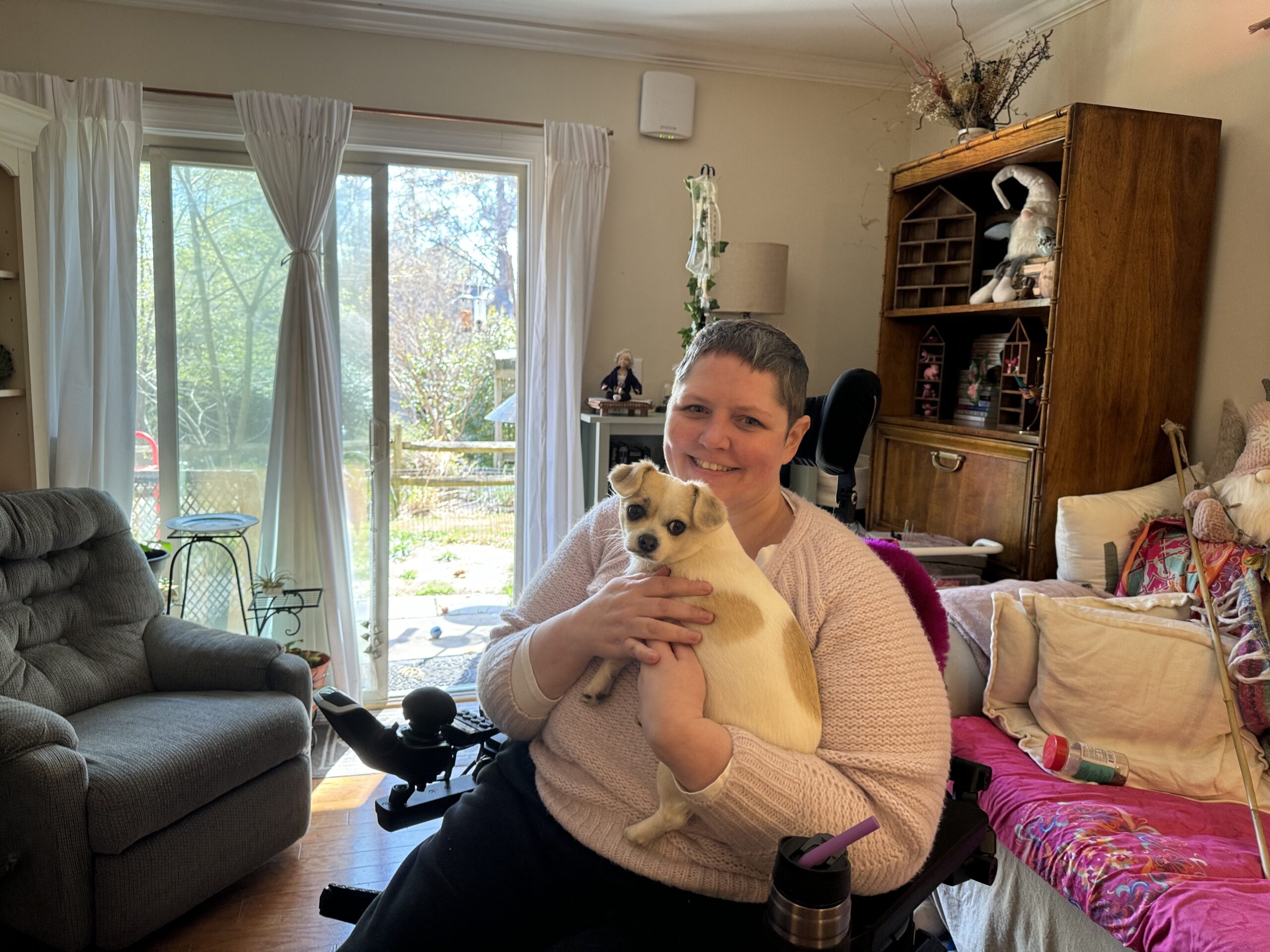
Becky Moore and her service dog in training, Daisy, pose for a photo in her apartment. Moore often uses the path from East Franklin Street to the Chapel Hill Public Library to take Daisy on walks.
According to Moore and other disability advocates, unexpected challenges aren’t only present in outdoor spaces.
In 2022, Valarie Schwartz spent seven months putting together a comprehensive accessibility guide for the Chapel Hill/Orange County Visitors Bureau that assesses the accessibility of 200 local businesses and 15 hotels.
“So you can find out what the seating is,” she said. “You can find out what the service is. Is it full service, or do you need to get in line? And then after you’ve ordered your food, are they going to bring the food to your table, or do you have to take the food to the table?”
Schwartz is a long-time Chapel Hill resident, and worked as a newspaper columnist. The 2023 Accessibility Guide wasn’t the first Schwartz put together – an original access guide was written by her and Ellen Perry, a Carrboro disability rights activist, in 2015.
One big difference Schwartz noticed while doing research for the second guide was the increase in single occupancy bathrooms. North Carolina House Bill 2 prioritized single-sex multiple occupancy bathrooms, but the bill was repealed in 2020, and since then, single occupancy bathrooms that are more accessible have become common.
“Many of our restaurants now have gender neutral restrooms which has created wonderful room for people using wheelchairs,” she said. “Also when an opposite sex couple is traveling together, if one of the people is in a wheelchair, they can both go in that restroom.”
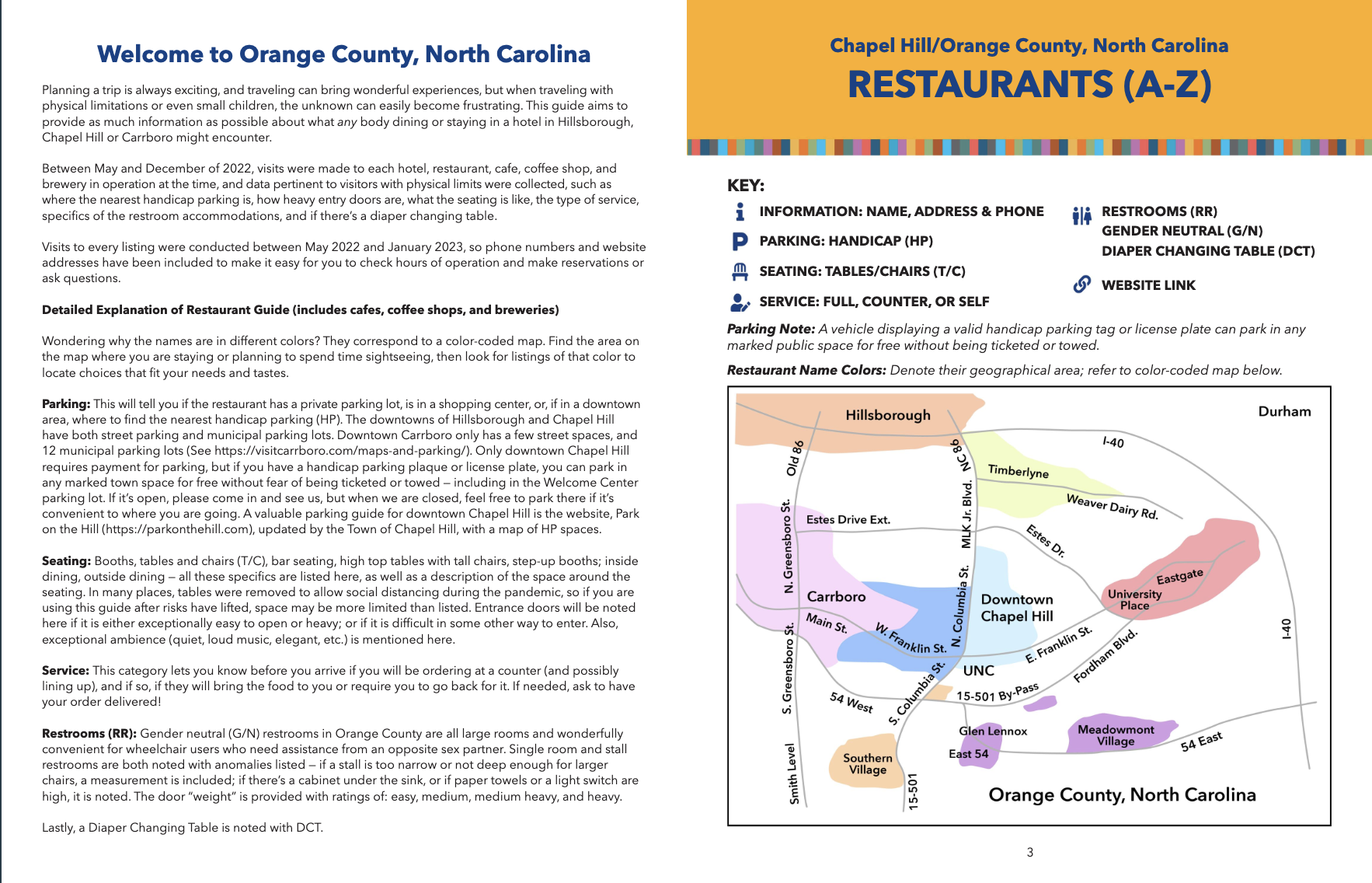
The first two pages of the Accessibility Guide created by Valarie Schwartz and the Chapel Hill/Orange County Visitors Bureau. The guide is dedicated to accessibility rights activists Cresha and George Cianciolo.
Town officials Wade Gulledge and Sarah Poulton said the Town of Chapel Hill is also taking action to make public facilities and resources more accessible.
To make sure operations comply with the Americans with Disabilities Act (ADA), the Town hired an outside consultant, Stewart Engineering, to complete an audit and make the ADA Transition Plan for Chapel Hill. Poulton said the transition plan was delivered last June.
“Our job is to be making good faith efforts towards compliance and all the things that are in that plan,” Poulton said. “It could take quite a while – the plan plans out five years and kind of gives you priorities for year one, year two, all through year five. But it’s going to take time to implement them and we are, as funding is available and as staff is available we will be making these fixes. We already on a big chunk of them.”
Gulledge and Poulton also said they appreciate feedback from the community about accessibility concerns in the meantime, as the Town continues to work towards its long-term goals.
“Let us know if you’re dealing with a town facility like a parking lot or a certain facility you’re struggling to get into,” Poulton added. “That helps us prioritize what fixes we need to make, so I’d say we are very open to feedback.”
One way to do that is by using Chapel Hill Connect, which allows residents to upload service requests, including accessibility fixes.
Moore said she is glad resources exist because accessibility concerns can go unnoticed unless they are brought up.
“Accessibility is unfortunately one of those things that we don’t think about until we’re forced to,” Moore said, “and life can change on a dime, and you can go from able-bodied to not able-bodied in a heartbeat and everything changes. And you are forced to figure out how to live within those confines and how to adapt to this repeated shut out of the places you’ve always been, of the places you’ve always gone that you just can’t go anymore.”
Since Moore’s feedback, the Town of Chapel Hill has started working to improve the library path conditions. Moore said accessibility fixes benefit everyone – after all, who doesn’t like a bigger bathroom stall, wider sidewalks, or ramps for strollers and carts?
“Those things make life more accessible for people that need them and truly make life easier for everyone. They just don’t realize it until it’s offered.”
Chapelboro.com does not charge subscription fees, and you can directly support our efforts in local journalism here. Want more of what you see on Chapelboro? Let us bring free local news and community information to you by signing up for our newsletter.

